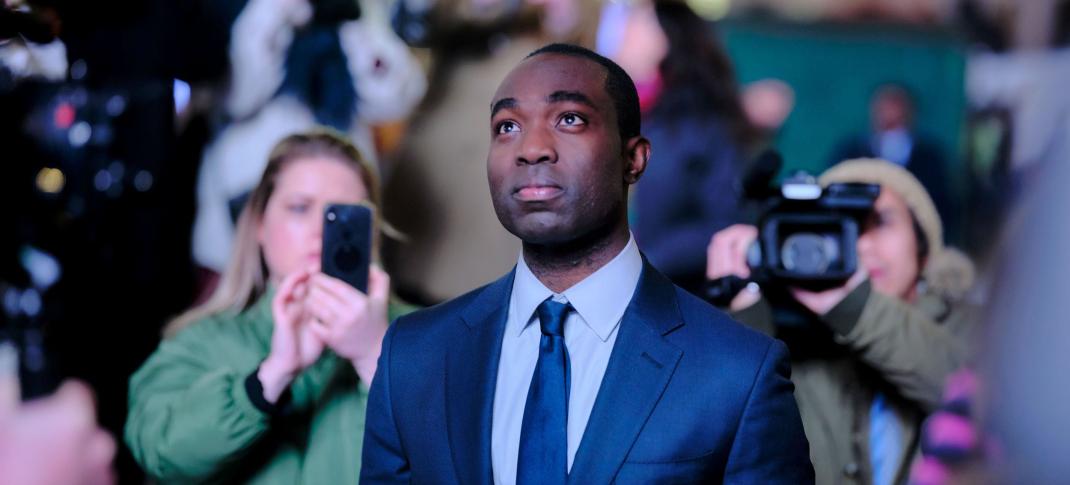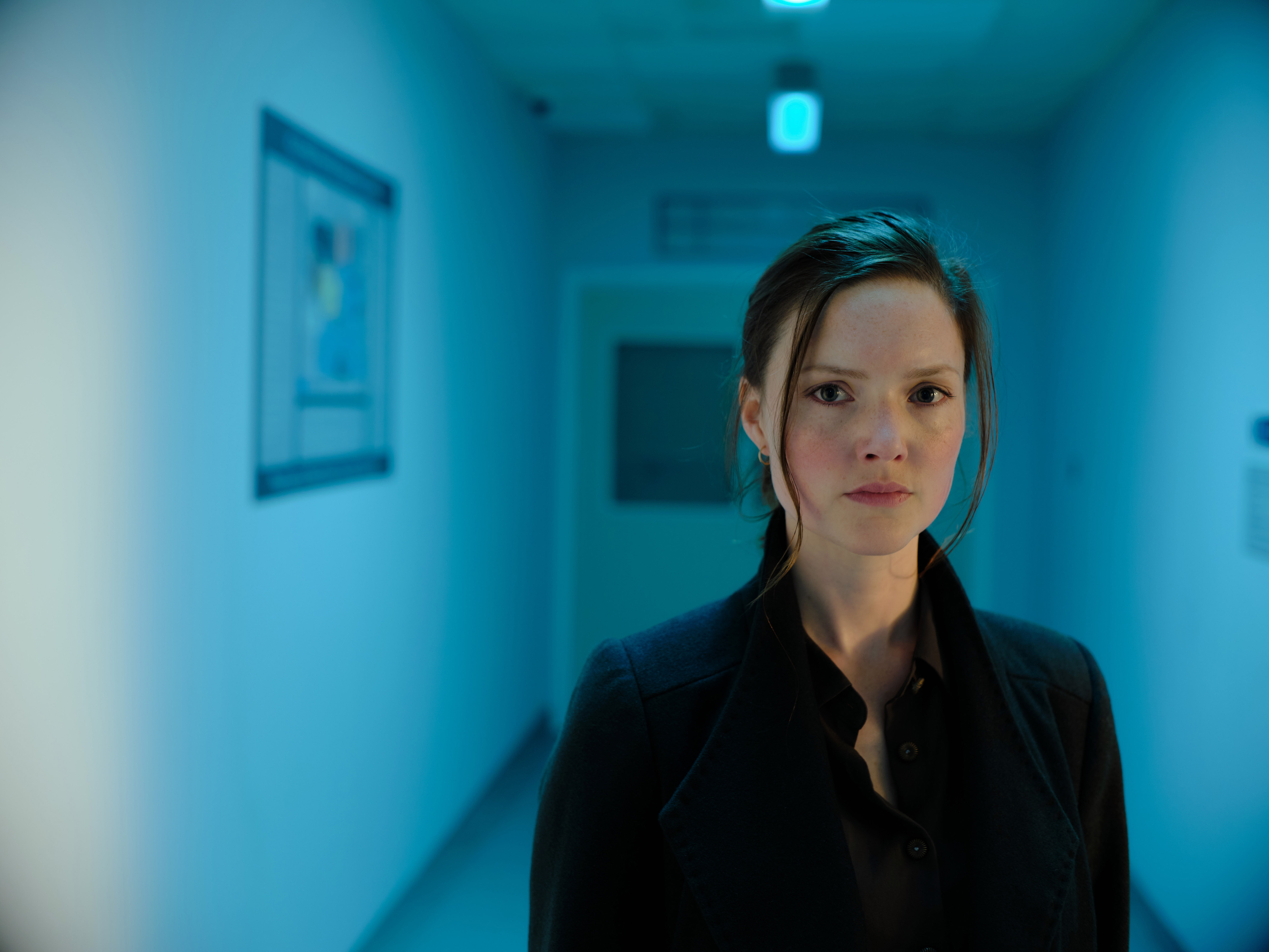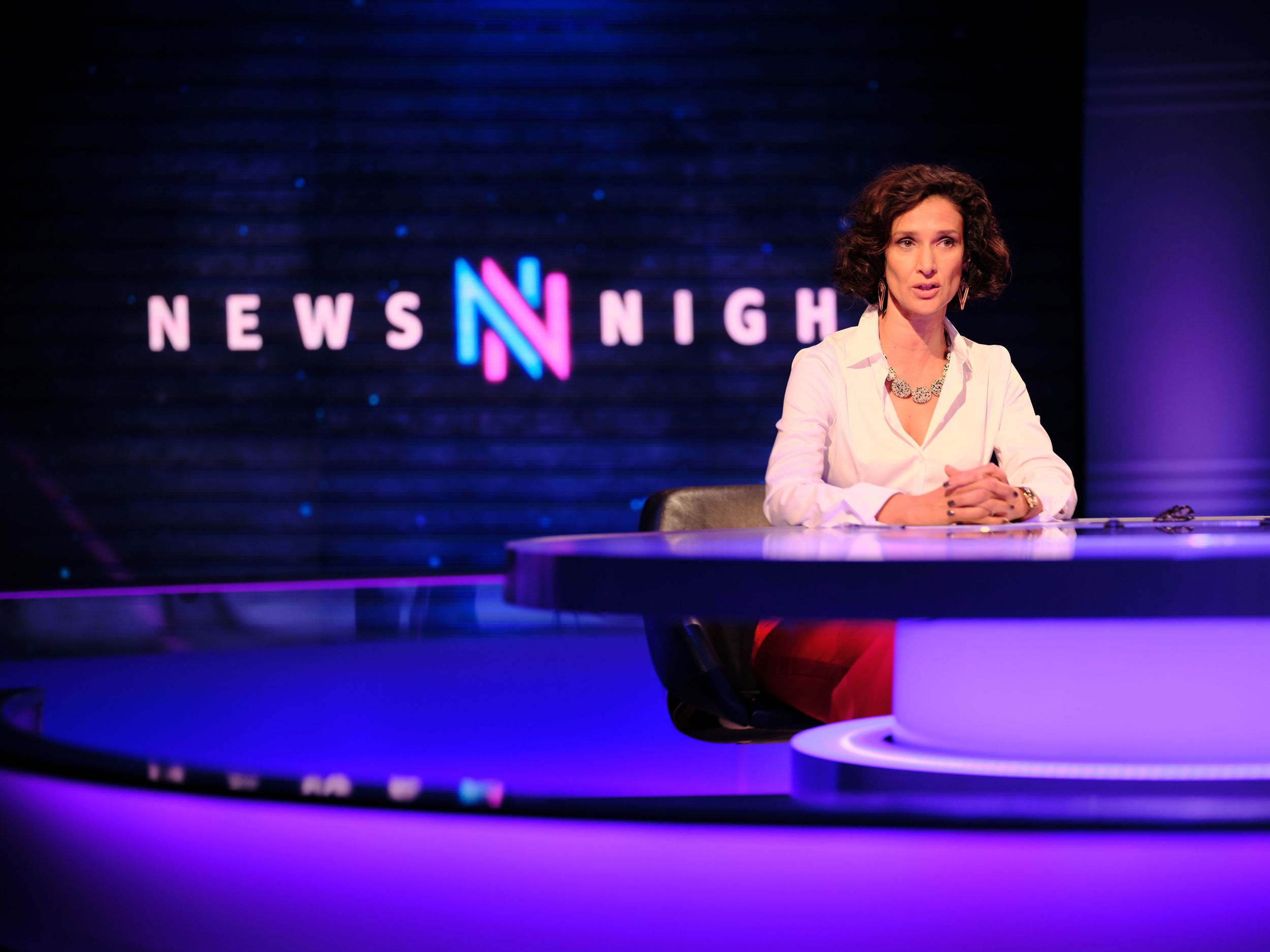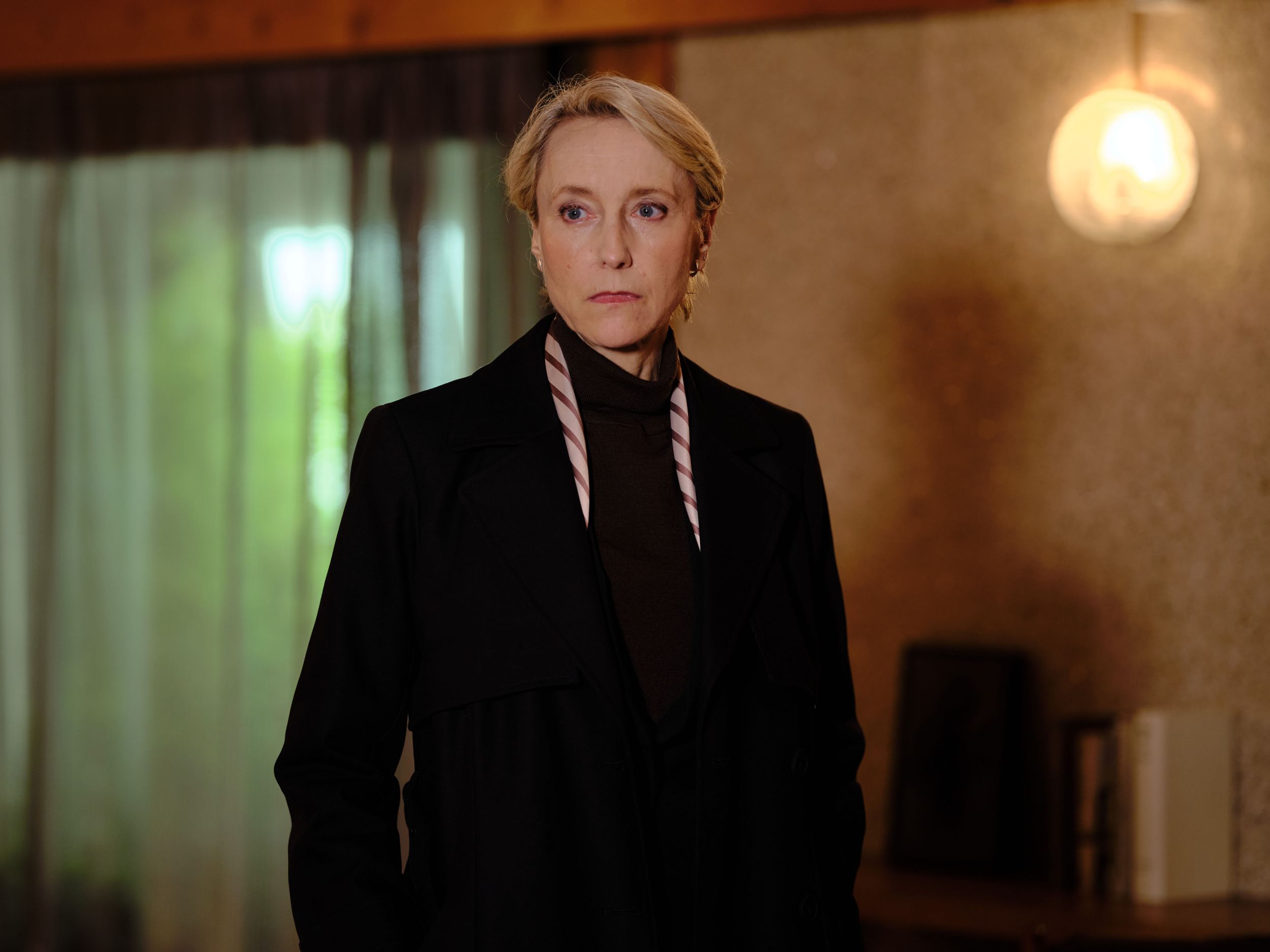'The Capture's' Second Season Seizes on Big Tech's Political Manipulations

Paapa Essiedu as Isaac Turner MP in 'The Capture'
Universal International Studios Limited/Laurence Cendrowicz
Halloween may make October officially "Spooky Season," but the scariest release this fall isn't a horror film with serial murderers or a ghost story. Instead, it's the latest season of The Capture, which arrives with all episodes on Peacock on November 3. It's a story with plenty of CGI, but not in the service of making you believe fantastical creatures are real. Instead, it focuses on the horror of CGI's ability to do just that, making the average viewer believe whatever their lying eyes perceive to be reality.
When our whole lives depend on believing what is shown to us on the screen, what happens when those images are manipulated to show us things that aren't real?
The first season of The Capture, which premiered in the U.K. in the fall of 2019, and followed on Peacock in the summer of 2020 as part of the streamer's initial launch offerings, posited a near future scenario where computer-generated imagery had gone from a few deep fake funnies on TikTok to an entire secret government program. Referred to euphemistically as "Correction," this technology was posited as used by the U.K. government to land convictions when the evidence wasn't quite up to snuff, creating visual proof of a crime to secure a conviction of the party everyone assumes is guilty.
Season 1 focused on DCI Rachel Carey (Holliday Grainger), who accidentally stumbles into a case where someone outside the government is using Correction in hopes of exposing it. First, the helmet camera footage of a man guilty of war crimes is manipulated, so he goes free, then the CCTV footage of him at a bus stop is altered to make it look like he attacked and kidnapped his lawyer. As Carey races to uncover what exactly is happening here, the government program, led by DSU Gemma Garland (Lia Williams) on the U.K. end and Frank Napier (Ron Perlman) on the U.S. end, covers the whole thing up, including murdering its own citizens.
In the finale, Carey is offered a position with the program for her talents at recognizing Correction; defeated, she seems to submit to "if you can't beat them, join them." Season 2 picks up a few months later, where Carey is now in charge of "Mapping," a tedious middle management job she can do in her sleep. But Garland has a good reason for keeping her in bureaucratic limbo; despite the ambiguity of the finale, viewers quickly learn Carey is compiling evidence to someday bring this all down from the inside, a stealth operation inside her own home, where she is watched 24-7-365 by her bosses.
Carey's chance to get out of Mapping comes when an up-and-coming MP, Isaac Turner (Paapa Essiedu), perhaps foolishly, dares the Chinese tech company vying for the U.K.'s security contract to go after him, ignorant of Correction's existence or that most high tech countries have access to it. A political nightmare follows: The MP does a remote interview where the signal is hijacked, unknown to the BBC. Turner is made to praise the Chinese tech company and spout their party lines hours after he publicly warned against them.
But the horror is only beginning. Upon learning about Correction, Turner decides the only sensible thing is to go in person and sit with the BBC's Khadija Khan (Indira Varma) and correct the record. In one of the show's most arresting scenes, what plays out on set between interviewer and interviewee is seen by no one in the broadcast booth, as the incoming footage from the cameras on set somehow transmit an entirely digitally altered interview, done in real-time, live, as the two talk.
Turner and Khan have no idea their actual interview was not broadcast until after it's over, meaning Correction is now known not only by an MP who is ready to go rogue to save his career but a journalist who sees Pulitzer prizes in her future the deeper this goes. Carey has allies now, but are they willing to play her long game? Turner's entire life starts to crumble; his wife leaves with their kids, he's sacked from the government, and he doesn't have time. Khan, meanwhile, has competitors who would jump on this story should they uncover it.
To say what happens next would be to reveal too much, but suffice it to say that Ben Chanan's scripts don't just bring into question what people see on TV, as the U.K. program discovers this is an inside job and start pointing fingers. CCTV camera footage is once again manipulated, walkie-talkies and phones are called into question, and Twitter and social media's influence on the political discourse. In one of the show's more shocking twists, medical records are just as vulnerable as everything else.
But the reason The Capture is quite as terrifying as it is is the specter of CGI's influence on politics. Season 2 arrives days before the mid-term elections here in the states, with the chances of a snap election in the U.K. rising daily. Though "Correction" does not exist (that we know of) at this junction, and deepfaking is not something that can be done in real-time (yet), the speed at which technology is developing and changing means that such things may be a concern by 2024 or 2025. Meanwhile, the aging set of lawmakers who run our government either do not understand or do not care to learn how these technologies can be used other than to help them get elected.
The public is already reasonably unaware of how much CCTV records them daily. Our growing dependence on computers and screens as devices proliferate and technology sneaks into everyday items is also something that's happened slowly enough that people haven't thought about it. (I literally fixed my stove by turning it off and turning it on again the other day.) Both seasons of The Capture remind us that we should question everything we see and ask who it is behind what gets put in front of our eyeballs to watch.
The Capture Season 2 will premiere on Peacock on Thursday, November 3, 2022. Season 1 is streaming now.




